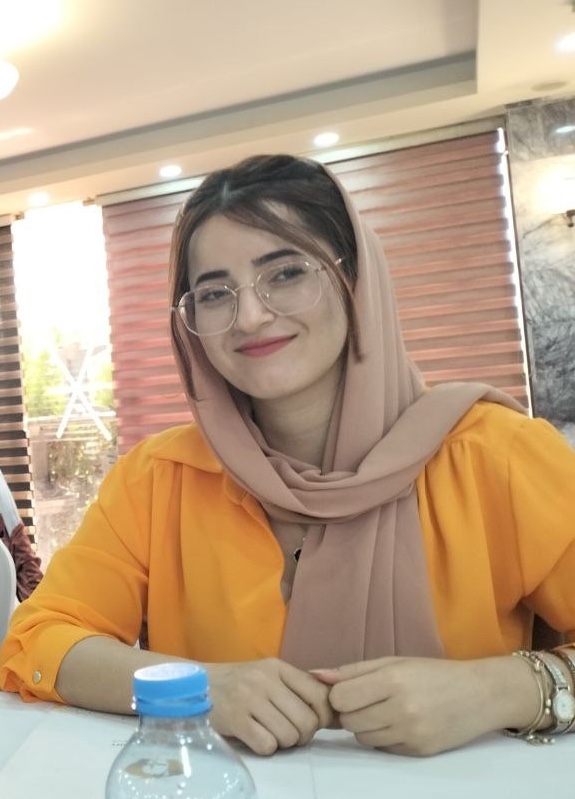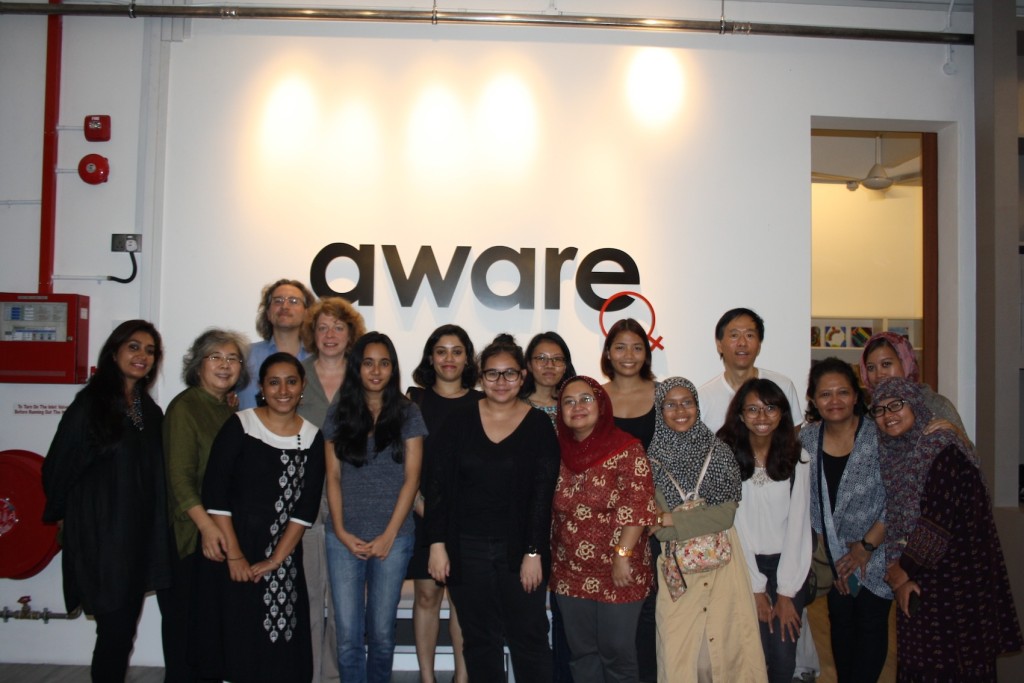Secrecy leads to the continuation of FGC in families and communities

By Megan Seaver Bakhan is an activist and advocate against female genital cutting (FGC), and she is passionate about educating young girls on the topic. Bakhan also works as a Project Supervisor for Wadi, an organization promoting self-help programs in the Middle East such as monitoring and lobbying for citizen rights: rehabilitation projects for long-term prisoners, literacy programs, education and training for women, public awareness of and ending domestic violence as well as campaigns against FGC. Bakhan specifically assists in the organization’s programs to protect girls from FGC. I had the honor of interviewing Bakhan about her work and what inspired to get involved in work to end FGC. “I came to know FGC very late in my life, because I graduated college and I was searching for a job. So I was searching for a position as an English translator, and I came across this German organization called Wadi and they were working on FGC. I remember the first week when I was starting [at Wadi] and hearing about FGC and thinking I had never heard of it happening in my own community. It was really shocking for me to hear something like that.” “I started thinking about whether I had friends or family members that had gone through FGC without me knowing. I began asking people in my family and other people I knew if they had gone through the practice. And I learned that a lot of people in my life and my family and friends had undergone FGC.” “I learned that two of my cousins were mutilated. I remember being super young and we were in our grandmother’s house and two of my cousins went somewhere and came back and then I saw them go into another room and heard them giggling and I thought I was like an outcast. I was separated from them for some reason.” “I asked my mom about what happened to my cousins and how come it didn’t happen to me? She said your dad didn’t let them, he said that no one will hurt my girls.” “I was fortunate to have someone in my life and my family to protect me, but at the same time I was feeling very bad for my cousins.” Bakhan was the first of her family to not undergo the practice. Instead, she bore witness to her mother talking about her own experiences with FGC. “She said ‘I’m also mutilated,’ and I asked her ‘how do you feel?’ She said ‘I don’t think about it because it’s so common.’” Learning about her family’s history with the practice inspired Bakhan to dive deeper into her activism work. “The more I worked [to end FGC], the more I realized how unaware society is about the practice and how dangerous that can be.” “I have been working with Wadi for six years now, and I still believe that there will never be a point where I am not shocked by the stories I hear from survivors. We also do field visits and we go to the villages where FGC is still practiced, because in that society, especially in the cities, it’s not as common.” When I asked Bakhan about the impact of those visits, she told me of how deeply rooted the practice can be in the social norms of the communities. “I sit and talk with people and they still totally believe in the practice and they are proud of it and they are thinking of mutilating their daughters.” “My last experience with a field visit was a month ago. We went to a rural area and we were doing our normal seminars and there was a very young girl, almost the same age as me and she had a daughter and we were talking about FGC. At the end I asked her ‘do you still believe in FGM’ because I assumed that after the conversation we had that she wouldn’t. But she was so firm on her beliefs that FGC is good and should be done.” “If you stop working, the practice resurfaces. We always try to go back to those places after a couple of months or a year. We go back in order to find out whether they are doing it again or not. And sometimes we go there again, and they say they’ve stopped doing FGC because there was an organization coming and they knew it was us.” “[These conversations with villagers tend] to not be immediately welcoming because this is a sensitive topic. So we always make sure when we go that we don’t start with FGC. We try to talk about something related to it like other health issues.” Bakhan also spoke about the importance of involving community leaders, particularly men in the work against FGC, since they have more decision making influence in these societies. “We forget about the male position in this. Most of the time in our community men do not know about FGC. They are completely unaware of it and when you have a victim of FGC and they get married to a man and the man is dealing with a trauma which he does not understand, which creates issues within marriages. So we need to open the conversation to men.” In looking to the future, I thought it was important to ask Bakhan what advice she would give to her younger self and other girls. She said: “I want people to question more. I never asked why this is happening. Curiosity is something good to have. I think this is one of the things young people should always ask why things are happening, and I think that’s advice for myself, don’t go with the flow, ask questions. Know what you are getting yourself into.”
Wadi and Aware organize first ever conference on Female Genital Mutilation/ Cutting in Singapore

(Originally published on Stop FGM Middle East on January 9, 2016. Republished here with permission). By Hannah Wettig Women from Malaysia, Thailand, India and Singapore joined on Thursday in Singapore to present their perspectives on FGM/C in their countries and discuss ways to eliminate the practice. It is the first time that such a meeting took place in Singapore and even in South East Asia as a whole, assumes Vivienne Wee, a founding member of the Singaporean women’s organization Aware. The Singaporean feminist organization organized the conference together with WADI as part of WADI’s Stop FGM in the Middle East & Asia campaign. Female Genital Mutilation/Cutting (FGM/C) has not been a topic for us, says Vivienne Wee, a founding member of the Singaporean women’s organization Aware. It is known that it is prevalent among the Malay community and other Muslim communities in Singapore. But to what extend and how severely girls are cut is not known. There are no studies, yet. Similarly, no studies exist for Thailand, India or other countries in the region like Sri Lanka where FGM is known to be practiced. John Chua, professor for film and associate of WADI also mentioned in his presentation communities in Cambodia and Dagestan who practice FGM. “There is so much, we don’t know yet about FGM in Asia”, Chua said. Professor Maznah Dahlui shows participant what exactly is removed in which case To overcome this lack of information the meeting included a training on how to conduct surveys on FGM. Stop FGM Middle East campaigner Hannah Wettig presented the newSurvey Tool Kit developed by Wadi with the support of the Wallace Global Fund. A first survey has been started in Singapore. Activists suspect that little is cut if at all. Common in the region are practiced like nicking, pricking and scratching of the skin above the clitoris as Professor Maznah Dahlui reports in her presentation. She is one of the most renown experts on FGM/C in Malaysia. In a survey she conducted only 22,2% of mothers who had their daughter “circumcised” reported that the tip of the clitoris had been cut, 33,3% reported the skin had been scratched, others called it a pricking or nicking. While in Malaysia still most girls are brought to a traditional midwife (69%), in Singapore it can be assumed that all “circumcisions” are undertaken by professional medical personelle because traditional midwifery is illegal. Speakers from Thailand say FGM/C is not their concern The Singaporean feminists from Aware are particularly concerned with the compromising of medical professions. Singapore is a secular state, yet an operation is carried out for religious and non-medical reasons. In all of South-East Asia the practice is viewed as a religious need. In Indonesia and Malaysia the Muslim bodies have called it compulsory. Such a statement was also released by the Muslim Council in Singapore but is taken down from their website now, Filzah Sumartono from Aware explains. The issue is still strongly tabooed. Such a practice does not seem to fit to Singapore’s modern image. However, the government does not interfere in the business of the religious communities, explains Filzah. Also feminists are afraid that discussing it might alert the fundamentalists. In Southern Thailand, the question is not a concern of women’s organizations, says Huda Longdaewa. There are more pressing issues like the repression of Muslims and the violent conflict in the district of Patani whose people are demanding independence and stricter Sharia rules. The two participants of Thailand believe the type of FGM/C practiced in their country is not causing any problems. However, the filmmaker John Chua who has just visited Patani, reports how he spoke with a midwife who admitted to still practice female circumcision even though her license has been revoked because she is nearly blind. Insia, Areefa, and Priya from the Indian Group Sahiyo The Indian group Sahiyo (meaning “friends”) find much stronger words against FGM. “It is like a sexual assault”, says Areefa Johari who has spoken out publicly as a victim of FGM/C. There is also the fear of being expelled from the community. The Dawoodi Bohra, a small well-to-do community, are not traditional or fundamentalist Muslims. On the contrary, they are in many aspects modern and cosmopolitan. Female circumcision seems to be a marker: “If you are not cut, you are not Bohra”, explains Insia Dariwala, who was saved from being cut because of a catholic mother but feels that she is not accepted in the community.
